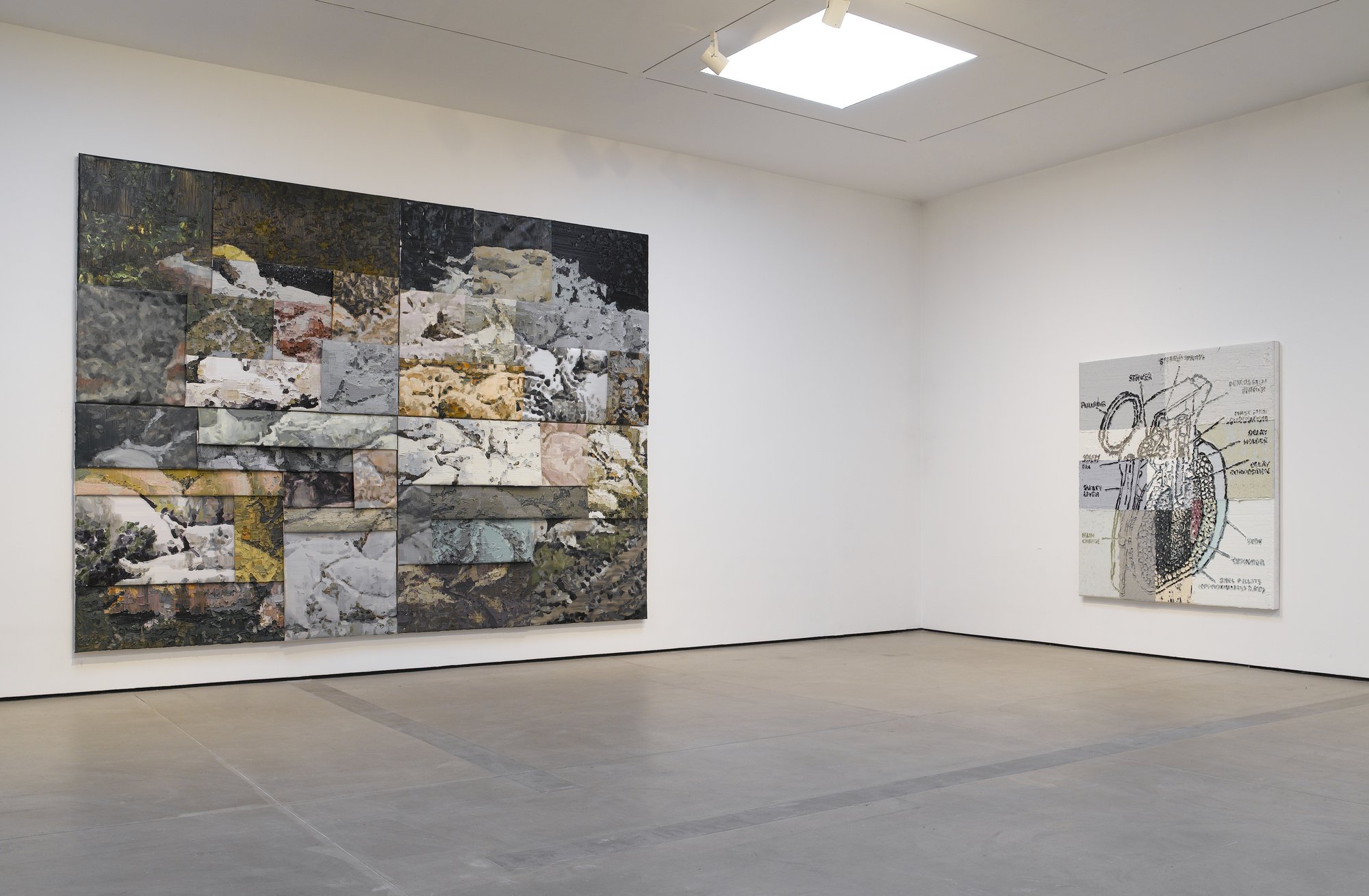Shows
Li Songsong’s “Recent Works”


Li Songsong’s first US solo show at the Pace Gallery displayed 11 large-scale impasto paintings, all recent works from 2010. Born in 1973 in Beijing, the artist’s signature style encompasses deconstructing found imagery, such as popular media photographs and film stills, and reassembling them into original paintings. By removing the context, historical significance and societal symbolism from these images, Li creates refreshing and new interpretations that are devoid of preconceived notions or bias.
Though Li’s paintings may appear to be of abstract images, with their dispersed layers of color, they are, in fact, detailed studies of physical subjects. Li works on one panel at a time, completing each one individually before moving on to the next. In his paintings, the artist’s aggressively applied brushstrokes are juxtaposed with the soft, subdued, pastel colors of his palette. Li methodically deconstructs the found images he uses as subjects, and reassembles them like a patchwork grid. Individually, each grid-block appears to be nothing more than a shape or color study, but when combined they morph into a continuous flowing image, made from many layers of color—like a single memory that is made from many layers of ideas.
This memory-like quality could be seen in Couple (2011), which comprises of a grid of grayish, blue-green hues. Up close the viewer sees a series of colored blocks, each applied with several thick layers of paint, with a number of gashes on the surface revealing the variously colored coats underneath. Upon stepping back, a navy-colored square in the middle of the painting, situated amongst a field of dark grays, is revealed to be a reflection from a bicycle headlight. The off-white ridges, grooves and abstract shapes that speckle the grid form into a young man on a bicycle, and a woman holding onto him with her face pressed against his back. The image displays a timeless moment of human interaction, created from an array of color planes, smoothly fusing together.
Pig Years (2010), at 12 feet in height, is a gargantuan, multi-hued painting made of four separate panels—with each panel consisting of overlapping layers of smaller panels—attached together by aluminum plates. The panels, with their overlapping layout and sea of clashing colors (varying shades of gray, yellow and blue), appear as though they would not come together as one image. But upon stepping back from the painting, the content emerges: a massive pile of pigs that are heaped together like a mountain of rocks.
Li manages to capture the feeling of trying to recall a memory, which, with the passing of time, is reconfigured or blurred, and becomes an amalgamation of associated senses, patches of other memories and shadows of the original. Just as our perception of people, places and ideas are based on sensory experiences, which are overlaid and bound together to form memories, so are Li’s paintings, in which multiple panels, grids, layers and colors come together as one integrated image.







